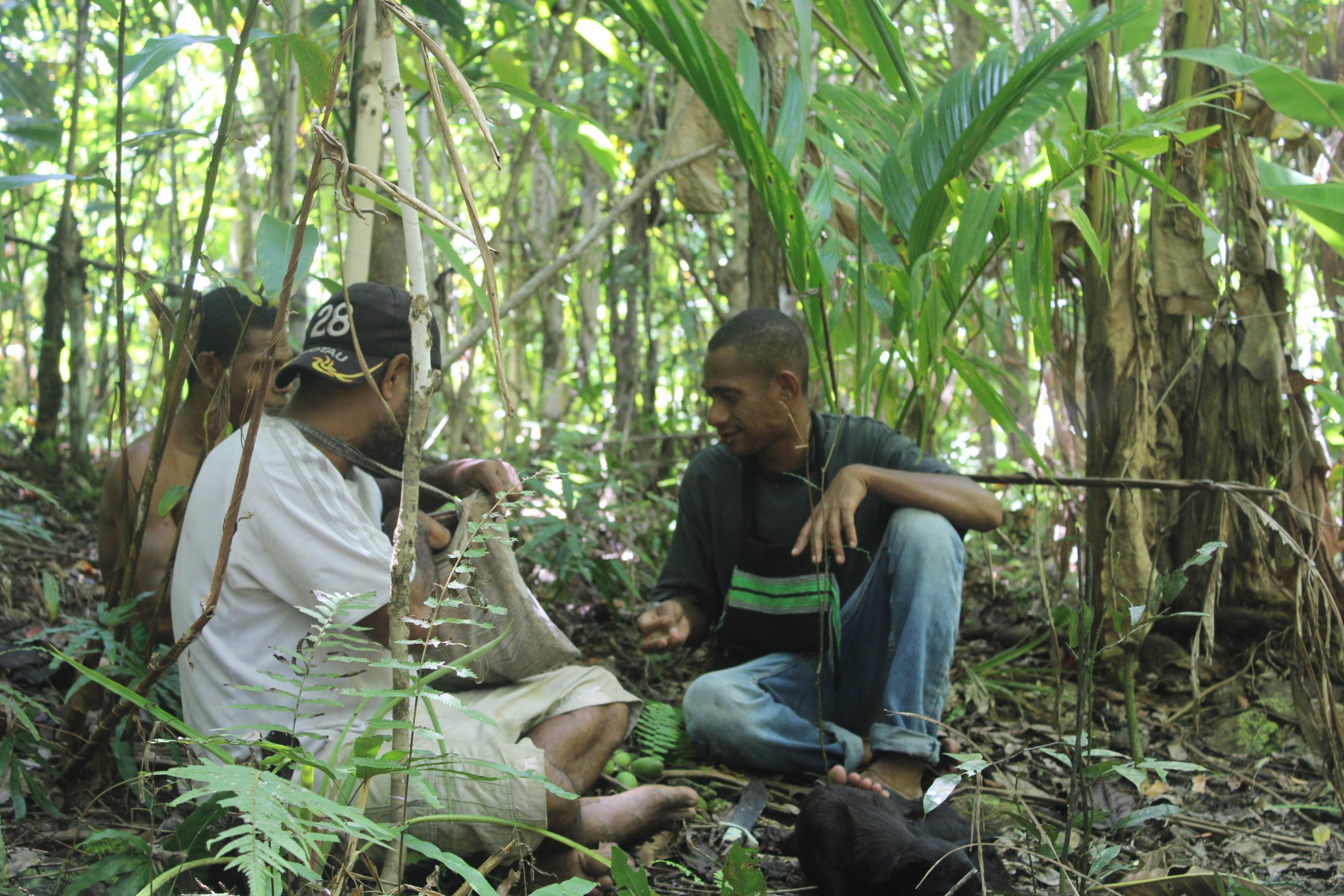I spoke with the director, researchers, laboratory staff, people who worked as guides and I realised that they had faced similar challenges as those we see in Wabumari today, a Cool Earth partnership. Namely, that people needed a steady income. And it’s true, too often we expect people protecting rainforest to do it for free, at a time in which nature protection is most needed to fight the climate crisis.
Soon after this visit, the Wabumari paraecology project launched but very naturally because people there were already working hard to observe, understand and research their environment. All that was missing was their salary. For those of you in the UK, you might be familiar with the RSPB’s Big Garden Birdwatch, which is the largest citizen science project in which the public collects data to inform research and policy. Obviously, it’s unpaid.


A biodiversity officer in the process of mapping the forest
The key difference is that the people in Wabumari fill the role of a paraecologist more so than a citizen scientist because they are paid but don’t have the formal education of an academic ecologist. In a country as rugged and remote as Papua New Guinea, where over 800 languages are spoken, paraecologists can overcome the geological, social and, more importantly, cultural constraints faced by non-local scientists.
Cool Earth employs local facilitators to translate information to residents and work with biodiversity officers like Isaac Dauge and Italia Kaifona to map their forest. For them, science is a way to live a decent life and empower their communities to make their own decision on how they see the future of their land.
With the training they receive, Isaac and Italia organise field trips, collect data and provide a flow of information between researchers and local people. I’m also really excited to see how the paraecology project and training will give people in Wabumari ownership of their own forest lab, currently in the making, and begin engaging in forest monitoring activities.
I really hope that in the future, they can be employed by conservation researchers, independently of employment by Cool Earth, and inspire the next generation to take up these career paths. The knowledge they’ll acquire as employees of research institutions can only benefit their own communities and make them even more self-reliant. It is that control over one’s land and resources that will maintain Papua New Guinea’s unique biodiversity and empower people.”

